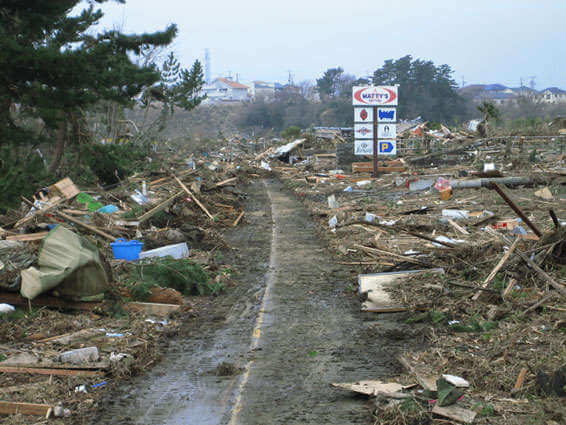
Radiation levels in the sea near quake-damaged Fukushima Daiichi plant are 3,000 times above legal limits. The new numbers suggest that radioactive water continues to leak from the plant, threatening coastal livelihoods. Radioactive materials have also been found in locally-grown vegetables.
Even as more bad news emerges, it doesn’t change the struggle to survive the next 24 hours for the hundreds of thousands of people who remain homeless. Government reports say there are 27,600 who are dead or missing. Damage could reach $310 billion, making the quake, tsunami, and radiation crisis the most expensive natural disaster on record.
Pioneers has three teams on the ground evaluating where their relief response will be most effective. Spokesman Matt Green says, “They’re still in the process of really assessing how they can serve the nationals and what impact the radiation and contamination will have on their continued ministry in the affected area.”
The Red Cross says the number of Japanese people in shelters has dropped from nearly half a million to 244,000, and more supplies are reaching the areas that need help the most. The top priorities are still getting fuel, housing, clothing and medicine to the survivors. Almost one million people still do not have running water.
Pioneers ministry leadership at the Orlando, Fla. base stands ready to support the efforts of those teams in any way needed. Green explains that “their hope is to connect with national believers and do what they can to alleviate the suffering, and also resource the nationals to really love their fellow Japanese.”
Green adds, “Our teams there are building relationships, coming alongside the Japanese Evangelical Church, serving them and helping them learn to reach their own people.”
Operation World reports that only 1.5 percent of Japan’s 126 million people are believers. And based on statistics from the Joshua Project, the Japanese are the second-largest unreached people group in the world.
Although Pioneers church planting teams were in areas physically unaffected by the earthquake, they want to bring hope to those who are suffering. At the same time, Green says, “Our hope would be that God would use this to mobilize more people to go and serve in Japan. We’ve seen this happen in other parts of the world where disaster has hit.”
Mobilizing more people to help is not a priority until the government gets the crises under control. However, that idea goes farther when applied to ministry in the future. In fact, Green says, this may have been a wake up call from God: “One of the Japanese pastors said to the team yesterday, ‘We have, up to now, been mostly concerned with increasing our numbers rather than faithfully proclaiming the Gospel and demonstrating the love of Christ.'”
Please join Pioneers in prayer for the people of Japan, asking that God would spare the lives of those still in danger, and that their team would be His agents of love and mercy. “Pray for the softening of hearts of the Japanese people,” Green says. “They’ve been resistant to the Gospel for many years. God is the only one who can open their hearts.”












